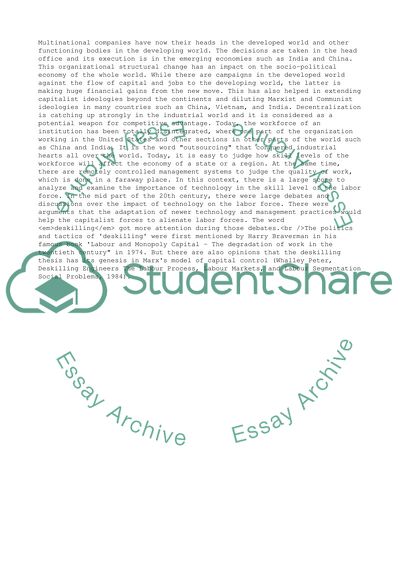Cite this document
(Deskilling of Workforce and Capital Flow in the 21st Century Essay Example | Topics and Well Written Essays - 1500 words, n.d.)
Deskilling of Workforce and Capital Flow in the 21st Century Essay Example | Topics and Well Written Essays - 1500 words. https://studentshare.org/management/1511769-deskilling-and-flow-of-capital-marginalised-workforce-in-twenty-first-century
Deskilling of Workforce and Capital Flow in the 21st Century Essay Example | Topics and Well Written Essays - 1500 words. https://studentshare.org/management/1511769-deskilling-and-flow-of-capital-marginalised-workforce-in-twenty-first-century
(Deskilling of Workforce and Capital Flow in the 21st Century Essay Example | Topics and Well Written Essays - 1500 Words)
Deskilling of Workforce and Capital Flow in the 21st Century Essay Example | Topics and Well Written Essays - 1500 Words. https://studentshare.org/management/1511769-deskilling-and-flow-of-capital-marginalised-workforce-in-twenty-first-century.
Deskilling of Workforce and Capital Flow in the 21st Century Essay Example | Topics and Well Written Essays - 1500 Words. https://studentshare.org/management/1511769-deskilling-and-flow-of-capital-marginalised-workforce-in-twenty-first-century.
“Deskilling of Workforce and Capital Flow in the 21st Century Essay Example | Topics and Well Written Essays - 1500 Words”. https://studentshare.org/management/1511769-deskilling-and-flow-of-capital-marginalised-workforce-in-twenty-first-century.


